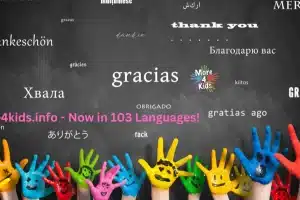Teaching responsibility is one of the most difficult challenges of parenting. It is here that parents most often worry about the dilemma of stifling individual choice versus instilling values and habits that lead to appropriate behavior. What kind of examples are we setting for our kids, and what can we do to help teach responsibility?
Teaching responsibility is one of the most difficult challenges of parenting. It is here that parents most often worry about the dilemma of stifling individual choice versus instilling values and habits that lead to appropriate behavior.
The political parallel of that dilemma is the reasonable desire for maximum individual freedom, but the need that arises to respect the rights of others. The way out of the dilemma is to recognize that healthy self-interest and respect for others not only do not conflict but reinforce one another.
Being ‘responsible’ in the most fundamental sense of that term means ‘being the cause of or the agent that produced some effect’. Recognizing that the causes we initiate lead to good or bad consequences is part of a view of responsibility called ‘logical consequences’.
Connecting the child’s chosen actions with consequences for the child allows him or her to make the connection by choice, rather than being imposed from the outside. When that is done, the connection has a much greater tendency to ‘stick’, while at the same time being viewed as fair and reasonable, since it was chosen rather than forced.
Extreme examples sometimes best help clarify the principle involved. A teen flirting with drug use might be ‘scared straight’ by being exposed to the real-life consequences that habitual drug users invariably experience: bad health, jail, etc.
But one can use the idea in much less serious circumstances. Most individuals over 5 or so grasp that being treated the same as others in similar circumstances is part of the essence of fairness.
This insight helps the parent show the child that failing to accept responsibility for, say, cleaning the room or getting ready for school on time inconveniences parents. Connecting the refusal to study with the likelihood of a bad grade is another common example.
Removal of privileges for failure to take responsibility is rarely greeted cheerfully, but provided the consequences are seen as fair most children will accept them and learn the proper lesson.
One key to successfully implementing this strategy is to ensure that the connection between cause and consequences is something the child can grasp at his or her level of development. It’s pointless to tell a five-year-old that failing to practice pitching two hours per day will keep them out of the Major Leagues.
On the other hand, connecting the refusal to study diligently with the failure to get into a desired college – and the attendant long-term consequences – is perfectly appropriate for a teen in High School.
Parents should keep in mind, however, that rarely are consequences life-threatening or irreversible.
A [tag-ice]teen[/tag-ice] that chooses not to exert the effort to get good grades one semester is unlikely to be damaged for life. There are many good schools besides Princeton and Stanford that do not require perfect grades.
Similarly, unless the child is in immediate physical danger it’s sometimes the case that doing nothing is (at least temporarily) the best approach. Sometimes allowing that extra bit of freedom to, say, not clean up the room today or skip chores, leads to a child who appreciates the breathing space. Even adults get vacations.
The highest probability of success will come from recognizing that [tag-tec]children[/tag-tec], like adults, have free will. Studies show that the amount of influence parents can exert over children is limited. Setting reasonable expectations, then being firm (but not bullying) is often the best one can do.
Remember, you are raising a person with the capacity to think, an individual in whom you hope to encourage self-responsibility. A duty-driven robot is an unhealthy individual just as much as is an out of control, self-indulgent whim-worshiper.
Teaching responsibility is every parents challenge. For some it is easier than others. Perhaps the best lesson of all is by example. As parents we have the most natual influence over our kids. Something to think about. I for one have started to critically look at my actions and ask myself how it may positively or negatively influence my childrens behavior. We are responsible for setting examples for our kids, and hopefully it will be a good example.











Add Comment